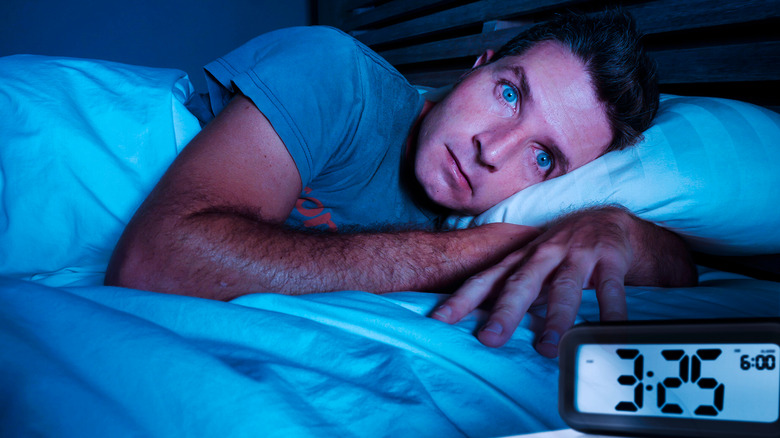Do you eat dinner late? Do you tend to be a late-night snacker? Everyone has been guilty of both from time to time, and it’s not uncommon to feel tired after a meal. According to the University of Pittsburgh Medical Center, it can take up to 40 hours — nearly two days – for your body to fully digest a meal, and your body is hard at work on that task the whole time. Additionally, what you’re eating can also factor into your post-meal sleepiness, as meals that are high in protein and carbohydrates take time to digest and release hormones that bring about feelings of tiredness. Also, foods that are high in the amino acid tryptophan, such as cheese, eggs, chicken, and fish, tend to make you feel tired after consuming them.
So, although it’s understandable that you can feel tired after eating, the question remains as to whether it’s advisable to hit the hay following a meal. A 2024 study published in the journal Sleep indicated a link between eating at night and weight gain. However, there are some experts who have made the argument that pre-bedtime eating may actually improve sleep (via Healthline). However, putting on the pounds is just one of the issues that could arise from sleeping right after eating.
Nighttime snacking can disrupt circadian rhythms

According to the TMJ & Sleep Therapy Centre of Cleveland, eating a meal too close to bedtime, or later at night, can impact your circadian rhythm. The circadian rhythm is triggered by cycles of daylight and darkness and keeps the digestive system moving, while also regulating sleep patterns. If you eat at an unusual time, the body is thrown off and releases hormones and chemicals at different intervals than it is used to. Your liver, for example, may not be prepared to deal with the sudden flood of nutrients and, in response, may work less efficiently than it ordinarily would (via Prevention).
Sleeping right after eating could also be inviting gastrointestinal problems, according to the Mayo Clinic. Lying down right after eating down can lead to heartburn, which happens when stomach acid flows back up the esophagus. Other health problems that are aggravated by eating before bed, according to the TMJ & Sleep Therapy Centre of Cleveland, are sleep apnea, snoring, and leaky gut syndrome.
There could be some upsides to eating before bed
On the other side of the debate, some experts note that eating just before bed may actually aid in weight loss. According to a 2004 study published in the Journal of the American College of Nutrition, having a structured snack, such as a bowl of cereal, before bed can help manage calorie intake and contribute to weight loss. Participants in the study who ate cereal 90 minutes after dinner ate less calories overall throughout the day.
Ideally, whatever your sleeping and eating habits may be, it’s a good idea to put down your knife and fork at least three hours before you get into bed for the night (via UPMC Health Beat). You should also be judicious with what you eat. Stay away from foods that are high in fat and sugar, such as ice cream and candy, and avoid alcohol and caffeine as well. The Sleep Foundation recommends healthy options such as a banana with almond butter, both of which are rich in magnesium, which could help play a role in regulating circadian rhythm. You could also opt for oatmeal, which offers magnesium as well as melatonin, a sleep hormone. Making healthy choices before bed can not only help you get the rest you need, but should also set you up right for the next day.